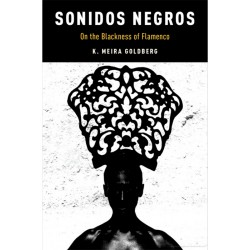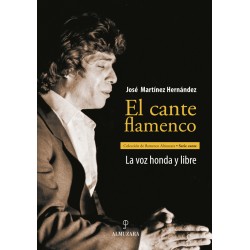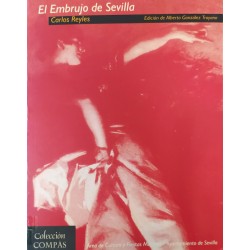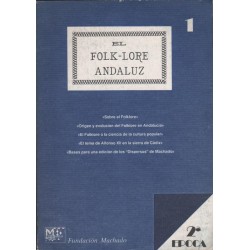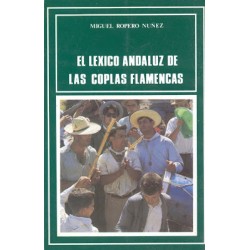Ningún producto
 Ver más grande
Ver más grande
Sonidos Negros. On the Blackness of Flamenco
LQ-FLA
Nuevo producto
K. Meira Goldberg
A new theoretical-methodological approach to flamenco dance history. Well illustrated with over three dozen images.
- Escribe tu opinión
Ficha técnica
| Autor/a | K. Meira Goldberg |
| Prólogo | Brenda Dixon |
| Descripción física | 24 x 16, 318 p., il. n. |
| Año edición | New York, 2019 |
| ISBN | 9780190466916 |
| Idioma | Inglés |
| Colección | Latin American and Iberian Music |
| Editorial | Oxford University Press |
Más
How is the politics of Blackness figured in the flamenco dancing body? What does flamenco dance tell us about the construction of race in the Atlantic world? Sonidos Negros traces how, in the span between 1492 and 1933, the vanquished Moor became Black, and how this figure, enacted in terms of a minstrelized Gitano, paradoxically came to represent Spain itself.
The imagined Gypsy about which flamenco imagery turns dances on a knife's edge delineating Christian and non-Christian, White and Black worlds. This figure's subversive teetering undermines Spain's symbolic linkage of religion with race, a prime weapon of conquest. Flamenco's Sonidos Negros live in this precarious balance, amid the purposeful confusion and ruckus cloaking embodied resistance, the lament for what has been lost, and the values and aspirations of those rendered imperceptible by enslavement and colonization.
-----
¿Cómo se figura la política de la negritud en el cuerpo del baile flamenco? ¿Qué nos dice el baile flamenco sobre la construcción de la raza en el mundo atlántico? Sonidos Negros rastrea cómo, en el lapso entre 1492 y 1933, el moro vencido se vuelve negro, y cómo esta figura, representada en términos de un gitano juglar, paradójicamente llegó a representar a la propia España.
El gitano imaginado sobre el que gira el imaginario flamenco baila sobre el filo de una navaja delineando mundos cristianos y no cristianos, blancos y negros. El tambaleo subversivo de esta figura socava el vínculo simbólico de la religión con la raza en España, un arma principal de conquista. Los Sonidos Negros del Flamenco viven en este precario equilibrio, en medio de la confusión intencionada y el alboroto que encubre la resistencia encarnada, el lamento por lo perdido y los valores y aspiraciones de aquellos que la esclavitud y la colonización han vuelto imperceptibles.
Reseñas



